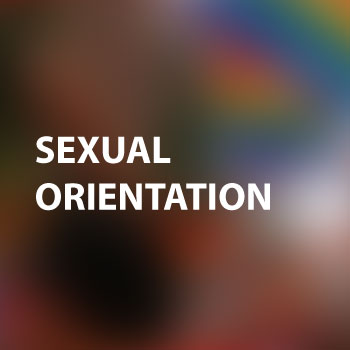
Sexual Orientation
Each person’s capacity for profound emotional, affectional and sexual attraction to, and intimate and sexual relations with, individuals of a different gender or the same gender or more than one gender.
Even though the IACHR has adopted an acronym easy to remember for its Rapporteurship, it is important to note that the Rapporteurship on the Rights of LGBTI Persons addresses human rights issues as they relate to sexual orientation, gender identity, gender expression, and bodily diversity.
The Commission also recognizes the self- identification of each person as a guiding principle.
Basic concepts included in this multimedia site should serve as a guide.
[1] International Commission of Jurists, Sexual Orientation, Gender Identity and International Human Rights Law, Practitioners Guide No. 4, Geneva, Switzerland, 2009, p. 21.
[2] Wekker, Gloria. The Politics of Passion: Women’s sexual Culture in the Afro-Surinamese Diaspora, New York, United States: Columbia University Press, 2006, p. 173. The phrase “mati work” has a particular meaning in the Suriname context; it “refers to women's sexual, spiritual, and emotional bonds with other women, as well as to the mutual responsibility and obligation that characterize their intimate relationships with each other.” Brown N., Jacqueline. Suriname, Sweet Suriname, GLQ: A Journal of Lesbian and Gay Studies Volume 13, Number 2-3, 200, p. 406, making reference to Wekker, Gloria. The Politics of Passion: Women’s sexual Culture in the Afro-Surinamese Diaspora, New York, United States: Columbia University Press, 2006.
[3] [Stigma] UN, Human Rights Council, Report of the Special Rapporteur on the human right to safe drinking water and sanitation, Stigma and the realization of the human rights to water and sanitation, A/HRC/21/42, 2 July 2012, para. 12.
[4] National Association of Friendship Centres, Supporting two-spirited peoples: Discussion paper, Otawa, United States, 2008.
[5] Testimony of Amaranta Gomez Regalado during a public hearing at the 147th Period of Sessions of the IACHR, March 16, 2013. Hearing requested by Fundación Diversencia. Video and audio available.
[6] Cabral, Mauricio. Interview with Benzur, Gabriel. Cuando Digo Intersex. Un diálogo introductorio a la intersexualidad, 2005. Interview available in: http://www.scielo.br/scielo.php?pid=S0104-83332005000100013&script=sci_arttext
[7] María Mercedes Gómez, interview, Centro latinoamericano de Sexualidades y Derechos Humanos. 2007.
[8] Gómez, María M. Capítulo 2: [Chapter 2: Prejudice-based Violence], in Motta, Cristina and Sáez, Macarena (eds.), La Mirada de los Jueces: Sexualidades diversas en la jurisprudencia latinoamericana. Tomo 2. [Justice´s Gaze: A Casebook on Diverse Sexualities and Jurisprudence in Latin America. Vol. 2] Bogotá, Colombia: Siglo del Hombre Editores, Red Alas, 2008, p. 99. [Free translation by the IACHR].
[9] UNESCO, Review of Homophobic Bullying in Educational Institutions, 2012, p. 50.
[10] Global Rights: Partners for Justice, Demanding Credibility and Sustaining Activism: A Guide to Sexuality-Based Advocacy, Washington, United States, 2010, p. 95.
[11] From Latin: “trans” (across, on the other side of); “cis” (on this side of).
[12] [Cisnormativity] Bauer, Greta R., Rebecca Hammond, Robb Travers, Matthias Kaay, Karin Hohenadel, and Michelle Boyce. 2009. ‘I don’t think this is theoretical; this is our lives': How erasure impacts health care for transgender people. Journal of the Association of Nurses in AIDS Care, 20(5): 348–61, cited in https://cisnormativity.wordpress.com/2011/08/23/harmful-ubiquity-introducing-cisnormativity/#more-26. Global Rights: Partners for Justice, Demanding Credibility and Sustaining Activism: A Guide to Sexuality-Based Advocacy, Washington, United States, 2010, p. 95.
[13] Bauer, Greta R., Rebecca Hammond, Robb Travers, Matthias Kaay, Karin Hohenadel, and Michelle Boyce. 2009. ‘I don’t think this is theoretical; this is our lives': How erasure impacts health care for transgender people. Journal of the Association of Nurses in AIDS Care, 20(5): 348–61, cited in https://cisnormativity.wordpress.com/2011/08/23/harmful-ubiquity-introducing-cisnormativity/#more-26.
[14] [Stereotype] Rebecca Cook y Simone Cusack, Gender Stereotyping: Transnational Legal Perspectives. Pennsylvania Studies in Human Rights, University of Pennsylvania Press, 2010, pág. 9.
[15] Global Rights: Partners for Justice, Demanding Credibility and Sustaining Activism: A Guide to Sexuality-Based Advocacy, Washington, United States, 2010, p. 95. See also Butler, Judith. Gender Trouble: Feminism and the subversion of identity, Routledge, 2006.
[16] Cabral, Mauro. Pensar la intersexualidad, hoy, in Maffía, Diana (Ed.), Sexualidades Migrantes: género y transgénero, Argentina: Feminaria, 2003, p. 121.
[17] Cabral, Mauro and Maffia, Diana. Los sexos ¿son o se hacen?, Buenos Aires, Argentina, 2013.
[18] Fausto-Sterling, Anne. Sexing the body, New York, United States: Brown University, 2000, p. 3.
[19] Sylvia Rivera Law Project, Fact Sheet: Transgender and Gender Nonconforming Youth in School.
[20] [Gender-Queer] Heartland Trans Wellness Group, Trans and Queer/LGBTQPIA Terminology. También ha sido utilizado para denominar una corriente teórica y política que denuncia exclusiones, fallos en las políticas de representación, una crítica a todos los procesos políticos que naturalizan las identidades como verdades objetivas, y una reflexión sobre el esencialismo y construccionismo, que considera errores del feminismo liberal. Ver, por ejemplo, Carrillo, Jesús y Preciado, Beatriz. Entrevista com Beatriz Preciado, Octubre de 2004.
[21][Hate Crime][Estados Unidos] The Hate Crime Statistics Act, 28 U.S.C. § 534. [Uruguay] Ley No. 17.677 – “Incitación al odio, desprecio o violencia o comisión de estos actos contra determinadas personas,” que sustituyó el artículo 149 ter del Código Penal, 29 de julio de 2003.
[22] [Sex assigned at birth] The “anatomic sex, and its presumed dichotomy (male/female), are the result of an ideological reading.”1 Moreover, “labeling someone as a man or a woman is a social decision. We may use scientific knowledge to help us make the decision, but only our beliefs about gender – not science – can define our sex. Cabral, Mauro and Maffia, Diana. Los sexos ¿son o se hacen?, Buenos Aires, Argentina, 2013.
Get all the news from the IACHR
Subscribe to our mailing list